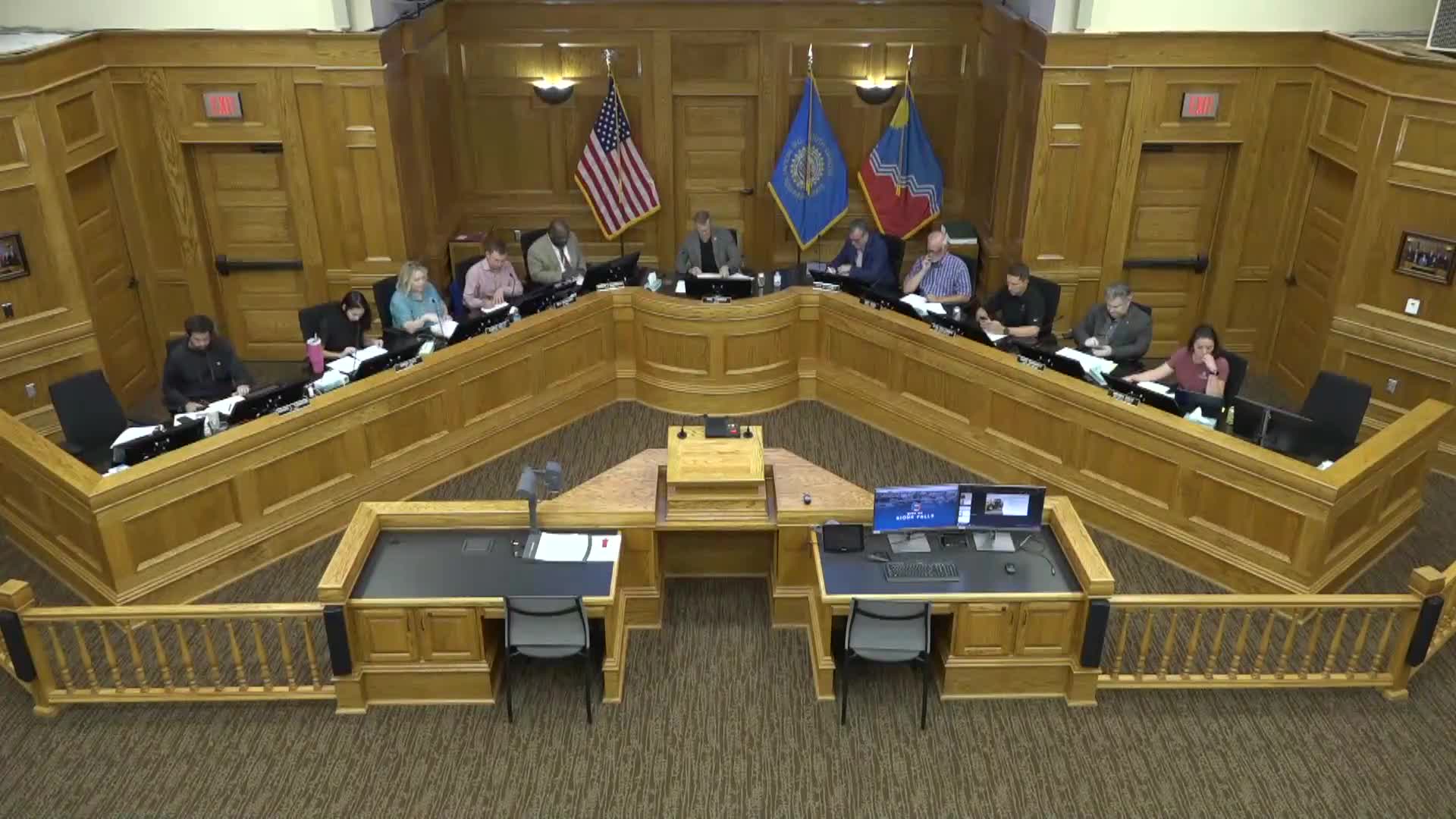Sioux Falls council approves ordinance restricting homeless encampments after weeks of public debate
Get AI-powered insights, summaries, and transcripts
Subscribe
Summary
The City Council adopted an ordinance restricting structures and encampments in public places, adding a tool city staff and police can use while council members and public speakers urged paired investments in housing and services. The ordinance was amended to extend a temporary-use allowance from one hour to two hours and passed 7–1.
Sioux Falls — The City Council voted 7–1 Tuesday to adopt an ordinance that creates new restrictions on dwellings and shelters in public places and gives police and parks staff a legal tool to address unsanctioned encampments, council members said. Michelle Treasure, a City of Sioux Falls staff member, told the council the measure is intended to be “a tool” and not a complete solution to homelessness. “This ordinance is not a solution. It's a tool that, among many, as we continue to build a more balanced response,” Treasure said during the second reading. Councilor John McCorris moved adoption of the ordinance and Councilor Mark Sigourney seconded the motion. During debate McCorris proposed an amendment to change the ordinance’s temporary-use definition from one hour to two hours; the council adopted that amendment unanimously. On final passage the ordinance carried 7–1; Councilor Bassey cast the lone no vote. Why it matters: Council members and dozens of residents who spoke at the meeting said the ordinance will affect people sleeping in parks and river greenways and could change how the city manages public safety, sanitation and access to public spaces. Multiple speakers urged the council to pair enforcement with more housing, treatment and long-term services. What the ordinance does and what remains unresolved: City staff described the ordinance as creating definitions and procedures for removing structures from public property, requiring notice before removals and establishing temporary property-storage procedures for personal items removed from public spaces. Treasure said the ordinance is part of a yearlong effort and staff have continued casework and housing placements while drafting the law. Public commenters described different policy priorities. David Hokaitis said the proposed ordinance would criminalize camping in public places and urged the city to store tents if it stores other personal items; he said the amendments were an improvement. “If you're going to store the property, well, how about storing the tent too?” Hokaitis said. Several speakers urged a “housing‑first” approach. Caden Whitman, who identified himself as a Downtown resident, told the council: “Housing first is not about ignoring addiction or mental health needs. It is about creating the stability necessary for people to actually engage in recovery.” Mary Wolfe, who described herself as a former homeless person, appealed directly to the council’s compassion and said people with PTSD and pets cannot always use shelter beds. Council debate focused on implementation and sequencing. Councilor Bassey, who voted no, said he supports protecting parks but opposed passing a tool without clear, funded next steps. “If I'm going to change a flat tire on my car, I have to take the lug nuts off. ... If I'm gonna take my lug nuts off, I might need a deep well socket and a ratchet,” Bassey said, using a tools metaphor to argue that a policy tool needs a plan and resources attached. Councilor Khourish and others said they supported the ordinance as a narrow tool that should force follow-on work on storage, service access and funding. Khourish asked the mayor to ensure the ordinance is not used in a one‑time “sweep” approach and suggested the council track implementation and consider a sunset review if enforcement is misused. Action taken: The council approved the ordinance as amended (temporary-use definitions changed from one hour to two hours) and adopted the measure by a 7–1 vote. The motion to adopt and the amendment were both moved from the dais; the amendment passed unanimously. What's next: The ordinance creates new operational duties for police and parks staff and will require the city to finalize storage and service‑provider procedures. Several speakers and multiple council members urged the city to align the ordinance with expanded housing-first investments, partnership with nonprofit providers, and specified funding lines; those follow‑up actions were not adopted as part of the ordinance. Public input and context: The discussion drew a large public turnout and extensive testimony during the public‑comment period; speakers included unhoused people, service providers and longtime residents. Commenters cited examples of local placements and successful housing efforts but warned that removing encampments without housing alternatives can deepen instability. The transcript records repeated calls for a task force or sunset review and requests that the city coordinate with county services and community partners to fund housing and treatment programs. Ending note: City staff and law enforcement will now implement the ordinance as written, including the two‑hour temporary allowance and the notice and storage provisions added during revision. Council members said they expect additional briefing and budget conversations about storage capacity, service funding, and enforcement guidelines.
